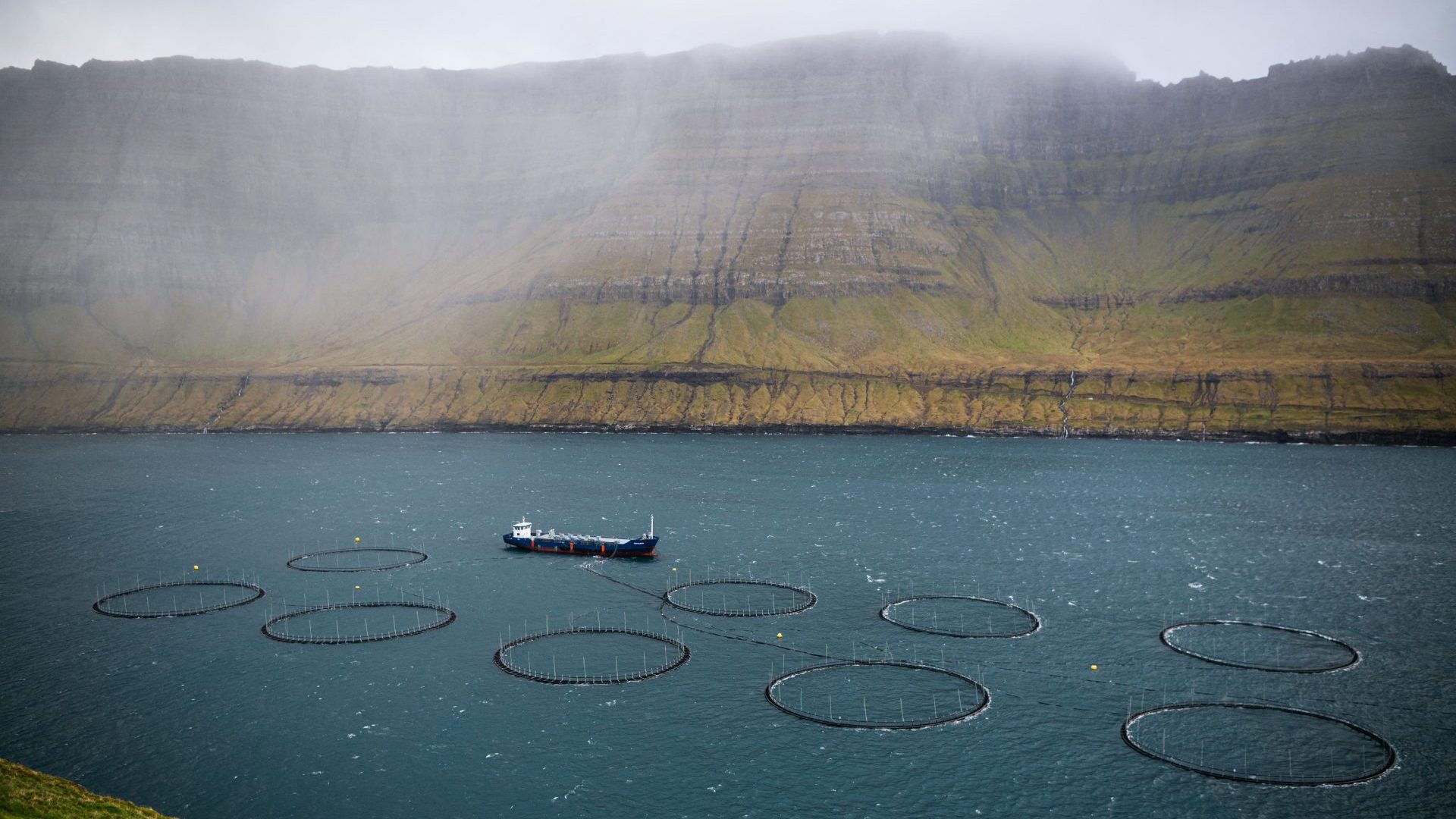Which is the only part of a fish that the Faroe Islands cannot export into the EU without tariffs being applied? Its fingers. It’s a joke that might raise a smile for the people of the small group of islands in the north Atlantic, but it certainly isn’t to the Faroe Islands’ fishing industry. The economy depends on it.
The Faroes declined to join the then EEC with Denmark in 1973, for two reasons: it didn’t like the common fisheries policy, and thought membership would compromise its autonomy (the fear was the community would recognise Copenhagen, not Tórshavn, as its capital). More than 90% of the islands’ exports are seafood. Half of that is farmed salmon, the other half captured fish such as cod and haddock, and under an agreement with the EU in place since 1980 it is shipped to the bloc tariff-free.
The problem comes if there is a “value-added” element to the fish – in other words, if you cover it in breadcrumbs and call it a fishcake, then you have “added value” and therefore tariffs are imposed.
It might seem a slight point. But because one industry is so dominant to the self-governing archipelago, this is a major frustration, Kate Sanderson, the Faroe Islands’ representative to the UK, says.
“One of the reasons for the frustrations from the Faroese side is, it makes it difficult for us to value-add to our fisheries products,” she says.
“So if you make fish pâtés or fish fingers or something, as long as it’s produced to a certain extent, or processed to a certain extent, it changes its categorisation as goods and comes under a different category, which would require a duty unless you can agree with the EU to change that particular product line.
“And that whole bureaucratic system of applying to the EU for tariff exemption for a different kind of product can take years. Just for one product. It’s just completely cumbersome.
“And of course the way the EU negotiates with other countries, understandably, is ‘well, what’s in it for us? If you want to change this part of the agreement, what do we get out of it?’ We have nothing more to give the EU because they already have free access to everything for all their products to the Faroese market, but of course it’s the size of the market. There’s a slight discrepancy there between the EU market and ours.”
What the islands would like to see, Sanderson says, is free access for all its seafood products regardless of how processed. “Or alternatively maybe a defined list of negative products, where everything else is ok and then you don’t have to go through this cumbersome process of applying for individual products one by one,” she says. “It kind of kills the incentives for the industry to do new things, because they know how difficult it’s going to be to get anything through the EU system.”
Formal relations between the Islands and the EU are currently based on three separate bilateral agreements, on fisheries, trade in goods and scientific and technological research (the Faroes have associate membership of Horizon). They are also seeking access to Erasmus and Creative Europe, a programme for the cultural and creative sectors. The ultimate goal, though, would like to be in the European Economic Area. “We see ourselves very much like Iceland and Norway,” says Sanderson.
For the eagle-eyed who spot the representative’s less-than-Faroese name (the Islanders’ names tend to end in -en, not -on), Sanderson was born and bred in Australia and first went to the Faroes as a postgraduate student to study the language. Now she is based in London representing the Islands’ interest – at any one time there are up to 200 Faroese in the UK working and studying, although the latter group has declined due to post-Brexit cost increases.
And what about exporting those fish fingers to the UK? The same challenge exists – the UK’s post-Brexit deal with the Faroe Islands is, of course, a carbon-copy of the one it previously had via the EU.











